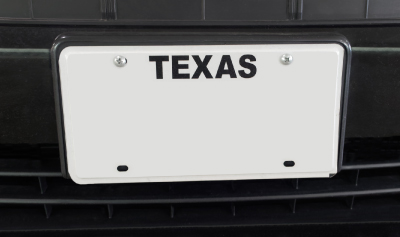Telemarketing Bond Claims Guide
Estimated Read Time: 4 minutes03-24-2022

The Telemarketing Bond is utilized by several states as a way to help regulate the integrity of the telemarketing industry. The bond is required as a way for customers to seek reimbursement for monetary loss caused by a telemarketer’s fraudulent or illegal actions.
Jet Insurance Company is a surety bond provider that provides the obligee (aka the regulator or agency that is requiring the Telemarketing Bond) with a guarantee that injured customers have an avenue for compensation from a third party. But, Jet also protects its clients by checking whether bond claim accusations are legitimate before paying out a claim.
How to Avoid Claims on a Telemarketing Bond
A telemarketer needs to comply with the license regulations made by the obligee. Most of these regulations are put in place to make sure that telemarketing companies don’t cause financial loss to their customers by the following reasons:
- Fraud
- Misrepresentation
- Financial failure
- Breach of contract
- Violation of legislation
The bond is held for the benefit of injured customers, which is just a fancy way of saying customers that are wronged can be reimbursed from the Telemarketing Bond.
Is There a Statute of Limitations on When a Bond Claim Can Be Filed?
The Telemarketing Bond only covers actions that occurred while the bond was active. Some obligees will allow for claims to be filed after the end of the bond or end of business operations, but keep this in mind—and this is very important—the alleged incident must have occurred within the bond’s active period.
There is extra time to file a claim that can range up to two (2) years like for the Ohio Telephone Solicitor Bond or even four (4) years like the Arizona Telephone Solicitation Bond. Please be aware of the specifications of how long bond claims can be accepted in your state before the statute of limitations sets in a no claim can be made.
Telemarketing Bond Limits
It is common for the Telemarketing Bond to have a set bond limit by legislation, but sometimes it can be determined by the obligee. The limit can range from as little as $10,000 in Texas or up to $100,000 in Arizona. Any claims that come in, whether individual or aggregate, cannot exceed the limit of the bond.
Telemarketer’s Bond Claim Process
In general, the surety bond claim process can be narrowed down by the following steps:

(1) Complaint. If a customer is injured by the telemarketer’s actions, the customer will submit a complaint to the obligee. A common complaint would be false claims made on a product.
For example, a Florida telemarketer sells a weight loss product called EZ Slim, claiming that users can lose 15 pounds in one week just from this product. Obviously, the client (we’ll call her Linda) did not receive these results within a week and decides to reach out to the telemarketing company (Telemarketers-R-Us) for a refund. If the company refuses to refund Linda, she can contact the Florida Department of Agriculture and Consumer Services (FDACS) for a formal complaint.
(2) Investigation. The obligee will look into the allegations made by the injured customer to determine whether a violation has occurred. Any pertinent evidence should be submitted for review.
Linda’s complaint is reviewed by the FDACS to determine whether the complaint has any weight. The FDACS reviews evidence provided from Linda and the telemarketer to see if the telemarketing company selling EZ Slim has broken the Florida Telemarketing Act.
(3) Judgment. The obligee will come to a decision whether a complaint is indeed a violation of legislation. If the obligee determines that a violation has occurred, the telemarketer will typically receive a final order to reimburse the customer. If the payment is not fulfilled within the given timeframe, this merits a claim being made to Jet Insurance Company against the bond.
For a bond claim filing, an injured customer can be the one filing the claim for reimbursement or, the obligee can file a claim on behalf of the injured customer. Jet will be obligated to pay out a valid claim (of course, our team always checks the validity of the claim and any ways that the claim can be pacified prior to payout).
The FDACS finds that the telemarketer selling EZ Slim was in violation of the Florida Telemarketing Act. The FDACS orders the telemarketing company to give Linda a refund within 30 days. But, Linda doesn’t receive her refund, so she is advised by the FDACS to file a claim on the Telemarketer Bond. She does so within 120 days of the violation or discovery of the violation in Florida or else her claim would be denied.
After Linda files the claim, Jet will check evidence given to see if the claim is legitimate. Given that the FDACS determined via investigation that a violation has occurred, that kind of evidence is pretty hard to counter and Jet does not see any evidence of malfeasance.
(4) Recovery/Indemnification. Once a claim has been paid out, the telemarketing company must repay Jet in the amount of the claim. All surety works this way—principals are still liable for their actions and will need to repay the surety company following a payout.
Jet pays Linda the amount of financial damages she suffered. The telemarketing company selling EZ Slim repays Jet for the claim payout and thus is allowed to continue working as a telemarketer in Florida.
| Bond Information | Legislative Documents |
|---|---|
| Arizona | Arizona Revised Statute Article 6 or Article 44 |
| Florida | Florida Telemarketing Act |
| Ohio | Ohio Revised Code |
| Texas | Texas Business & Commerce Code |


